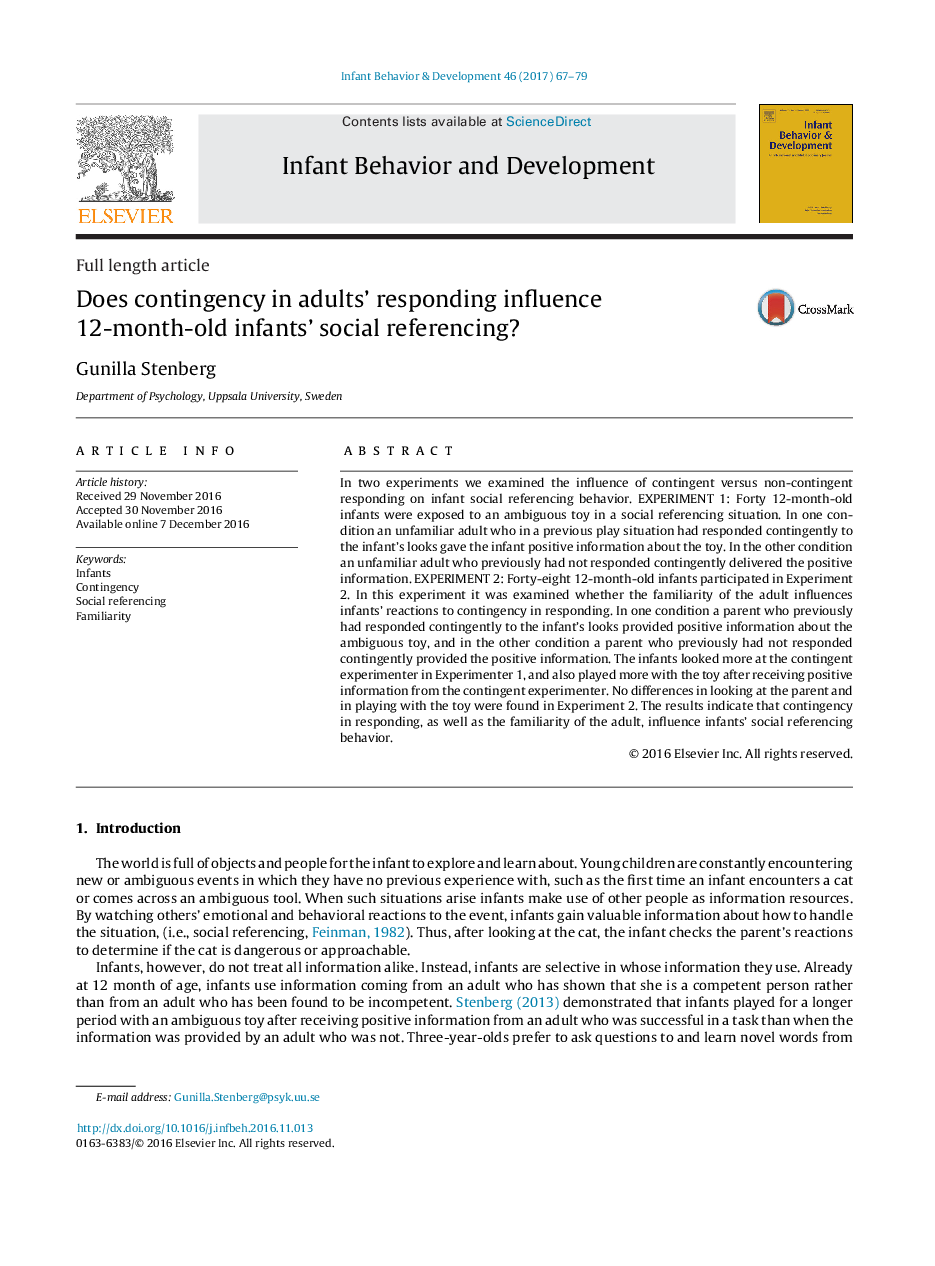| Article ID | Journal | Published Year | Pages | File Type |
|---|---|---|---|---|
| 5039786 | Infant Behavior and Development | 2017 | 13 Pages |
â¢In two experiments infants' reactions to contingency in adults' responding was examined.â¢The adult's contingency of responding influences 12-month-olds' social referencing.â¢Contingency in responding, as well as the familiarity of the adult, influence infants' behavior.
In two experiments we examined the influence of contingent versus non-contingent responding on infant social referencing behavior. EXPERIMENT 1: Forty 12-month-old infants were exposed to an ambiguous toy in a social referencing situation. In one condition an unfamiliar adult who in a previous play situation had responded contingently to the infant's looks gave the infant positive information about the toy. In the other condition an unfamiliar adult who previously had not responded contingently delivered the positive information. EXPERIMENT 2: Forty-eight 12-month-old infants participated in Experiment 2. In this experiment it was examined whether the familiarity of the adult influences infants' reactions to contingency in responding. In one condition a parent who previously had responded contingently to the infant's looks provided positive information about the ambiguous toy, and in the other condition a parent who previously had not responded contingently provided the positive information. The infants looked more at the contingent experimenter in Experimenter 1, and also played more with the toy after receiving positive information from the contingent experimenter. No differences in looking at the parent and in playing with the toy were found in Experiment 2. The results indicate that contingency in responding, as well as the familiarity of the adult, influence infants' social referencing behavior.
